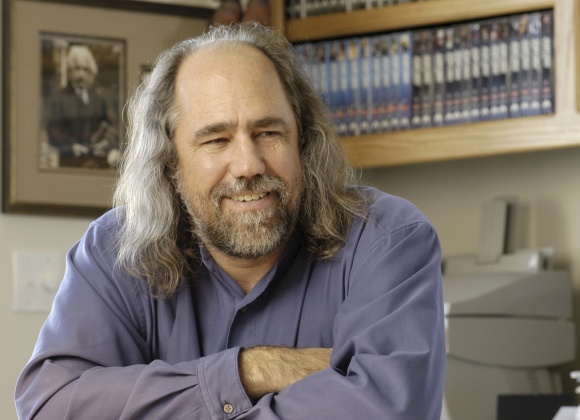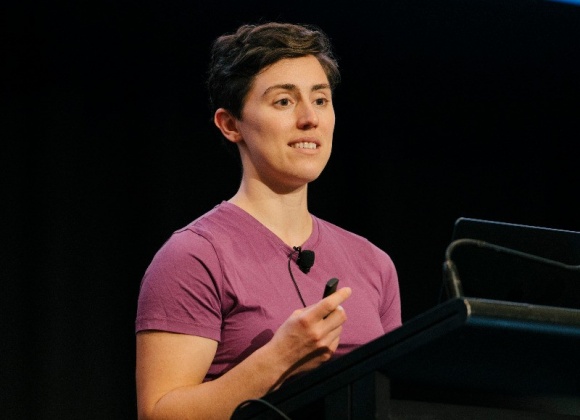In this week's podcast, Barry Burd talks with Wendy Closson. With over a decade of experience immersed in development and championing agile practices, Closson coaches technology leaders to manage effectively, respond reasonably, and navigate the choppy waters of business. Closson's presentation at QCon New York was entitled Syntactic Sugar for English: Pragmatic Eloquence.
Key Takeaways
- Software is a very abstract experience, so it can be difficult to communicate ideas about software to people outside.
- The majority of people in teams want to remain in their comfort zone, so don't want to change.
- Many problems that may seem technical in nature have to do with outside experiences.
- The algorithmic approach to communicating has to do with creating new habits around our speaking.
- With a single word you can elevate a population or destroy a friendship.
- Simplicity is divinity, where someone can look at your code and understand your intentions, and the same in real-life communication.
- Compromise isn't always the best thing. If no one's really feeling passionate about it, that's not going to create the best code.
Subscribe on:
Show Notes
How Understanding Developers Helps Coaching
- 1m:20s - Software is a very abstract experience. It doesn't really live in the physical word, so it can be difficult to communicate ideas about software - using it or creating it - to people outside the software world.
- 1m:58s - It's possible to manage without direct experience... When you think of your job as a service leadership job. It's your job to facilitate, to trust, to understand what people are saying. But without the background, that trust can be hard to keep; a lot of things can get lost in translation.
Integrating Mindful Practices With Executive Coaching
- 3m:24s - For teams, practices include meditation for individuals, depending on how open they are to it, and non-violent communication helps clear up communication and simplify.
- 3m:43s - There's a lot to learn in the psychology of parenting, and in understanding what impacts us as children. When you understand the junk people pick up in their childhood you can relate to them a little bit better.
- 4m:18s - We live in a world of a lot of overwhelm. And as software needs to be built faster, and we don't necessarily get to work the way we want to work, and we're not necessarily respected the way we should be respected, and there's challenges around trust, between business and development.
- 5m:08s - A lot of businesses are adopting "mindful work," but even a few minutes of meditation a day can help you be less reactive. "Impending doom" should be met with a risk analysis: what's going on, what's at risk, what are the chances of it happening, and what kind of an impact is it going to have on the business.
- 7m:58s - Sometimes just having a calm presence, being present, and communication is all you need.
- 8m:11s - There's more than just asking the right questions- there's the experience of love. Being able to share things, and not received in judgment, is something we don't see very often in our lives.
How Agile Development is like Buddhism
- 8m:40s - We're comfortable being uncomfortable. The vast majority of people in teams want to remain in the state that they're in, in their comfort zone, so a lot of times people don't want to change. And that's OK.
- 9m:23s - The vast majority of problems we have, even if they seem technical in nature, have to do with outside experiences. You could have a team of junior developers who don't know what they're doing and have created a lot of debt, but the chances are you have a team who does know what they're doing, and the debt was created for a reason.
- 10m:28s - Buddhism is a lot like Agile development. Agile development is hard because it's like a colony of ants, you get rid of the "I" and you work as a team, and you get rid of the ownership. That was a hard transition.
- 10m:42s - I was a cowboy coder in my early days. I liked going fast, I liked making my code, I liked it looking just right, and then opening to team ownership you have to let so much of that go. You have to have trust that it's going to go the way it needs to go because everyone is trying to do the right thing.
The Algorithmic Approach to Communicating
- 12m:23s - The algorithmic approach to communicating is not so much about sentence structure... there are certain phrases we use in our language that are putting a veil over reality, creating miscommunication and conflict.
- 12m:29s - You can change your wording, but we have been programmed to speak this way our entire lives, and it doesn't just change overnight.
- 12m:48s - The algorithmic approach has more to do with "How do we create new habits around our speaking?" so that we can stop saying these things, and embrace other ways of speaking.
- 19m:04s - Our word is a powerful tool. With a single word you can elevate a population or destroy a friendship.
- 20m:13s - We hurt other people in our communication because we say something that triggers an emotional response in them. This is about avoiding phrases that trigger responses, and trying to use language that will help people understand you.
- 21m:11s - Simplicity is divinity. Simplicity in code is where someone can look at your code and understand your intentions, and it's the same thing in communication in real life. When we can get to the simplicity of understanding someone else, that's where the magic can happen.
Clarity, Responsibility and Dealing with Issues in Software Teams
- 23m:59s - When you have frequent retrospectives, the sooner you have difficult conversations the better.
- 25m:15s - Sometimes people are embarrassed and would rather not follow standards than ask simple questions.
- 26m:07s - A great deal of frustration with software teams comes from the art of software creation.
- 26m:55s - Compromise isn't always the best thing. Compromise can work really well if, in meeting half way, everyone believes in it, but if no one's really feeling passionate about it, that's not going to create the best code.
Communicating Effectively on Different Platforms
- 27m:027s - As you go up the scale of being further away from the person, your chance of miscommunication increase. If you have something to share that you think could be misinterpreted, try to make it as close to as in person as possible.
- 28m:03s - Technology creates a lot of awesomeness in communicating; it creates the ability for teams to work across the globe. It creates a lot of beautiful gifts. At the same time, it creates a lot of overwhelm.
- 29m:05s - Teams are dysfunctional in person. Multiply that exponentially as they get further apart, in terms of culture and time zone.
- 31m:40s - Agile practices rely on good communication. You need to be communicating with the product owner, with each other for team ownership, to be communicating to continually evolve. But these aren't exclusive to Agile.



